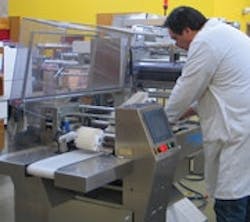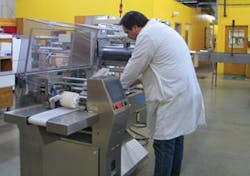It was St. Patrick's Day 1964 when Alvin C. Formo opened Formost Packaging Machines in Seattle. Most bread still came in a waxed-paper wrapper when Formo started building his machine to automatically push bread into polyethylene bags.
While traveling to Japan, Formo had an opportunity to observe the rapid advancement of packaging machinery design and witness Fuji Machinery's role in that development, which ultimately led to a three-way licensing agreement with Fuji in Nagoya, Japan.
Just four years before Formost Packaging merged with Fuji Machinery in 2008, Formo passed away, leaving the company in the hands of his son, Norm Formo, current president of Formost Fuji (www.formostfuji.com).
Formost Fuji builds horizontal bagging machines, as well as horizontal and vertical form-fill-seal wrapping machines, with various integrated automation systems that can align, collate and feed product for a variety of industries, including baking and confectionary, pharmaceutical and medical, fresh produce, processed foods, textiles and sundries and cosmetics and personal care.
At its corporate office and manufacturing plant in Woodinville, Wash., Formost Fuji employs nearly 100 employees, including five mechanical engineers, two electrical/controls engineers and three technical illustrator/writers.
"Every machine we build has, at the least, a small PLC," says McDermott. "The previous generation of wrapper was PC-based, but our customers prefer PLC, so we switched. As machine complexity increases, HMI touchscreens are added, as well as more capable PLCs. Complex machines also will include servos or other motion, as well as analog I/O. We use ac variable frequency drives on every machine."
The complexity of the system drives which way Formost Fuji builds the I/O, explains McDermott. "Smaller, simpler machines get hardwired I/O," he says. "For larger ones or ones that will have a network anyway, we'll consider an I/O network, usually Ethernet IP."
Even though its machines don't require a high safety category, some customers request it anyway, which Formost Fuji accommodates with safety relays. "Customer specifications, cost and complexity drive our controls design," explains McDermott. "We're asked to do more with less, for less, in a smaller space."
McDermott sees a potential opportunity for wireless sensor technology to be impacted in the new few years. "Beamed power may become useful in an industrial environment, making wireless sensor technology truly wireless," he says. "Decreasing the wiring requirements will mean more sanitary machines and lower assembly labor costs."



